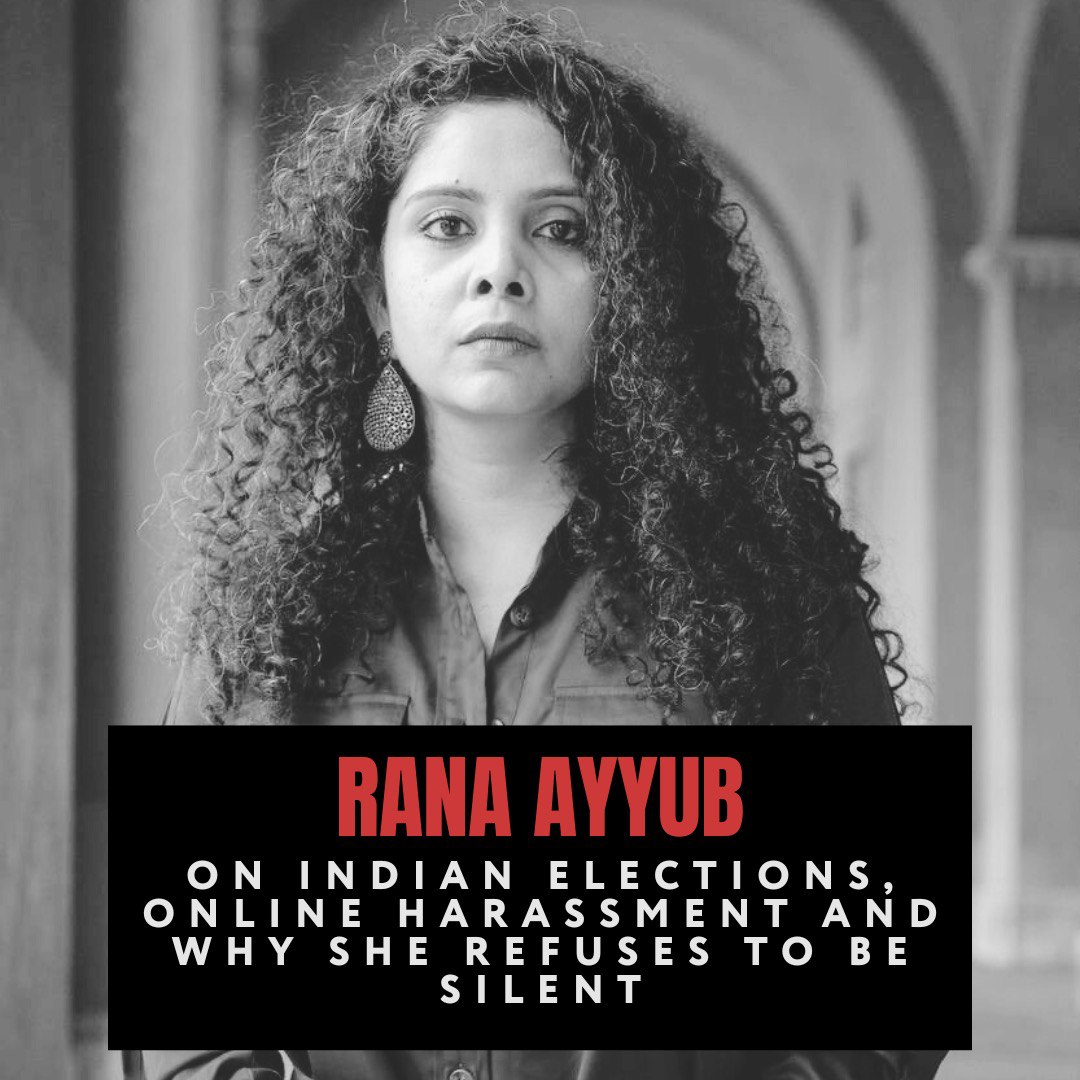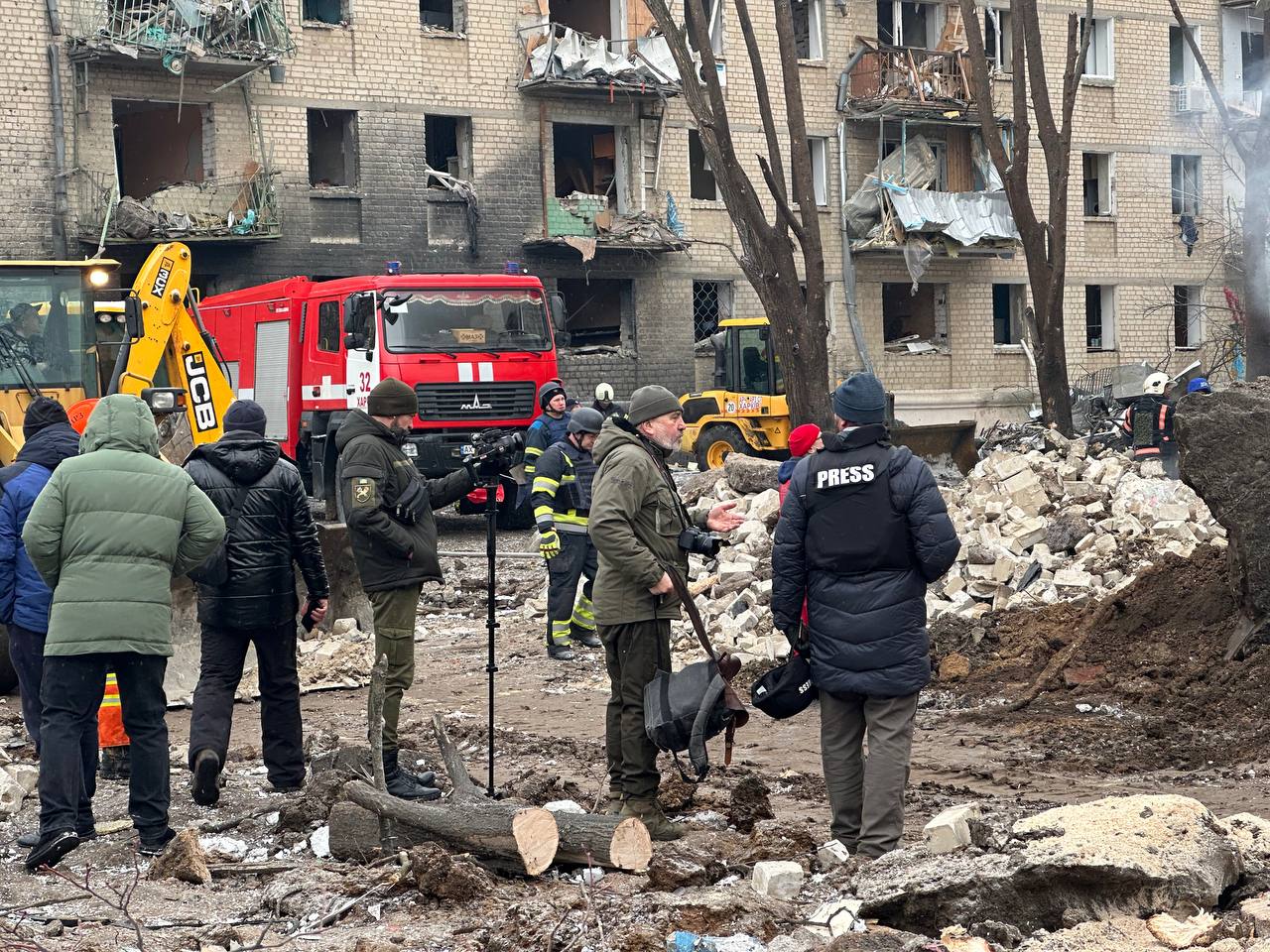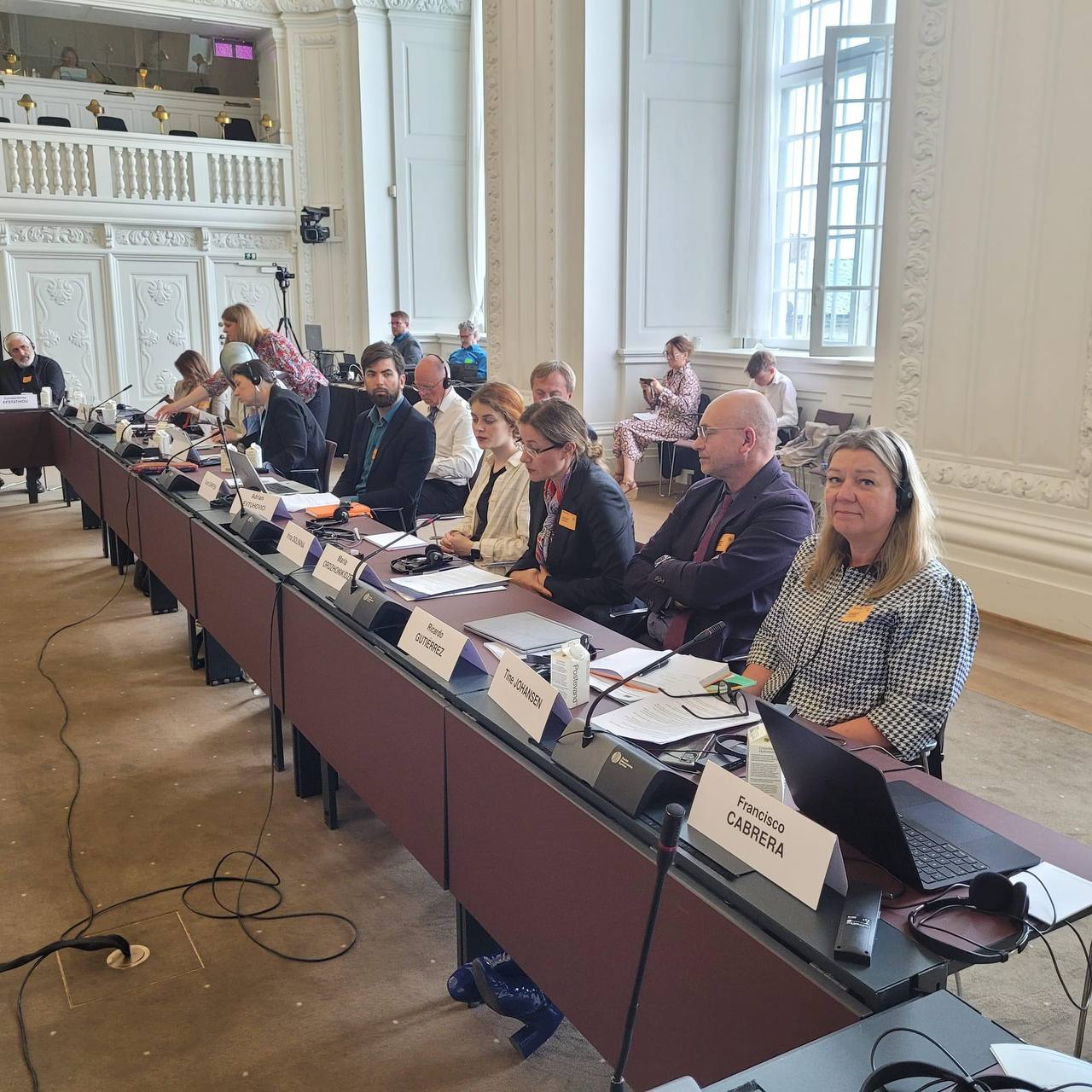INVESTIGATIVE GRANT PROGRAMME

The documentary Of Caravan and The Dogs by filmmakers Askold Kurov and Anonymous 1, supported by the JFJ Investigative Grant Programme, won The Golden Horn award during the 64th Krakow Film Festival. The festival is one of the oldest events in the world dedicated to documentary, animated and short feature films and was held between May, 26 – June, 2 2024. The documentary will be premiered in the UK during the Sheffield DocFest in the Debates program between 12-14 June.
Also, during the Sheffield festival, the UK-based public will have an opportunity to watch Black Snow, another documentary supported by the JFJ Investigative Grant Programme, directed by American journalist and filmmaker Alina Simone and produced by Kirstine Barfod.
TROUBLE WITH THE TRUTH PODCAST
Listen to two new episodes of Trouble with the Truth by Lana Estemirova:
In the first episode, Lana talks with Rana Ayyub, one of India’s most prominent investigative journalists, who is also a staunch critic of Modi’s government. Rana reflects on how the current anti-Muslim propaganda pushed by the Indian PM and his BJP party is a dark chapter of her country’s history. For her bravery and professionalism, Rana has faced a relentless online harassment and death threats while also being hit with exhausting lawsuits. She talks about the her latest legal battles and why despite all the pressure, she will never be silenced.

In the second episode, Lana spoke with Mariam Nikuradze, a Georgia-based reporter and co-founder of OC Media. They discuss how the foreign agents law will affect independent media in the country, why some journalists might consider exile and what’s it been like covering the protests on the ground. They also talk about the wider possible implications of the current law-making practice in Georgia – the upcoming October parliamentary elections can dramatically alter the future of the country and crush the dreams of joining the EU, supported by 80% of Georgians.

REPORTS

In May, JFJ released its annual reports about attacks on media workers in 2023 in Armenia, Ukraine, Uzbekistan and Kyrgyzstan. JFJ partners monitor attacks on journalists in post-Soviet countries and occupied territories and publish the results daily on the Media Risk Map.
- In Armenia, compared to 2022, the total number of recorded incidents in 2023 increased by 11%. Such deterioration is an alarming sign since in 2022 there was a 38% reduction in attacks compared to 2021. In 2023, the authorities initiated several bills threatening the freedom of speech and media. At least one of them has since become law.
- In Ukraine, amid the full-scale invasion, 47% of the incidents that occurred in Ukrainian-controlled territory came from the Russian military. In 2023, there were three times fewer incidents recorded than in 2022. As a result of Russian aggression in 2022-2023, 16 media workers died in Ukrainian-controlled territory while performing their professional duties.
- In Kyrgyzstan, as in previous years, attacks via judicial and/or economic means remained the primary type of attacks against media workers. In 2023 such attacks accounted for 84% of the total number of incidents. Throughout 2023, the State Committee for National Security, the security services and law enforcement agencies of Kyrgyzstan have significantly intensified the prosecution of media workers for their investigative journalism and critical publications.
- In Uzbekistan, attacks via judicial and/or economic means remained the main method of exerting pressure on media workers. Two media workers were recognised as political prisoners: Shokhida Salomova, author and administrator of the telegram channel Pathanatomy of the Country of Uz and the YouTube channel Shakhina Salomova, and Dauletmurat Tazhimuratov, the former editor-in-chief of the newspaper El Khyzmetinde (In the Service of the People).
EVENTS AND ADVOCACY

On May 4, during the UNESCO Press Freedom Day in Santiago, Chile, the Justice for Journalists Foundation and Journalismfund organised a side event Investigating Environmental Crimes: Can You Cover Coal Mining or Water Scarcity and Stay AliveintheGabriela Mistral Cultural Centre. The trailer for the documentary Black Snow, supported by the JFJ Investigative Grant Programme, was screened, and a lively discussion on the challenges of global environmental journalism followed.

- On May 28, JFJ’s Director Maria Ordzhonikidze participated in the PACE hearing on new and emerging threats to journalism organised in co-operation with the partners of the Council of Europe Platform for the safety of journalists in Copenhagen, Denmark. The parliamentarians also heard a first-hand testimony by the IStories journalist Irina Dolinina, who together with her colleague has been subjected to an uninterrupted cyber and physical harassment, despite living in exile in Prague.
ORKHAN DZHEMAL MEDIA SAFETY ACADEMY

In Kyiv, Ukraine 2402 Foundation conducted another round of HEFAT + VR safety training for journalists, editors, freelancers, local producers, documentarians, photographers and videographers working in a war zone. The basic security course is free and supported by the Justice for Journalists Foundation. Similar training will be also held in June.
In May, Orkhan Dzhemal Media Safety Academy, in partnership with the Rory Peck Trust, conducted a three-day psychological retreat for a mixed group of 18 participants: Russian journalists in exile, Ukrainian and Kyrgyz journalists and media workers. During the retreat, trainers equipped media workers with various tools for dealing with continuing stress and burnout. Journalists who currently reside in different countries had an opportunity to meet in person, share their problems and difficulties, support each other, and create new professional collaborations.
If you are a media worker and require safety training of any kind, please do not hesitate to write a request to academy@jfj.fund.
